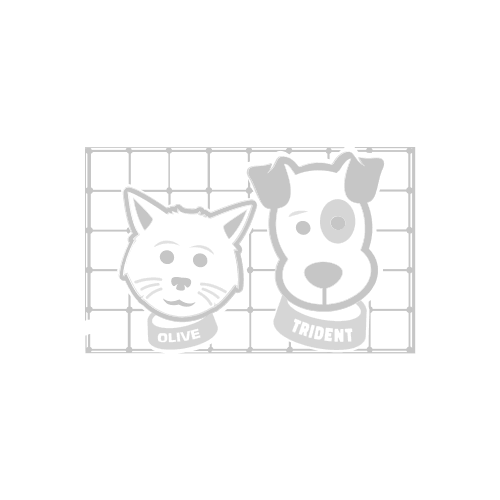Halloween Pet Health
Halloween is fun for kids and adults, but it can be rough on your pets. Trick-or-treaters at the door can scare them, and that yummy candy can make them very sick.
NBC News BETTER spoke to veterinarians across the country about the biggest Halloween threats to pets. Here are six things you can do for your furry family members to keep them safe and as stress-free as possible.
Calls to the ASPCA’s Animal Poison Control Center jump 10 percent Halloween week, and most of those calls deal with dogs eating chocolate.
Chocolate is a no-no for both dogs and cats, even though most cats don’t eat it. The darker the chocolate the more dangerous it is.
“That’s because darker chocolate has a higher cocoa percentage, which means more theobromine — the caffeine-like compound in chocolate that can cause heart rhythm problems and even seizures in cats and dogs,” said Dr. Jason Nicholas, president and chief medical officer at Preventive Vet.
Dr. Nicholas cautions that the fat in milk or white chocolate can cause pancreatitis, an inflammation of the pancreas, which can lead to serious complications.
Xylitol, a common sugar substitute used in sugar-free gum and candy, is another sweet danger for dogs that can sometimes be fatal.
“It’s more toxic to dogs than chocolate,” Dr. Nicholas told NBC News BETTER. “While xylitol might help prevent cavities in kids, even a small amount of it can cause low blood sugar, seizures and even liver failure in dogs.”
Raisins and grapes can cause some dogs to suffer sudden kidney failure. There’s no way to tell which dogs respond this way to grapes, so keep any treats with raisins out of reach.
Those big plastic bags that candy and other snacks come in are attractive to your pets because they can smell the food that was in there. If your dog or cat puts their head inside the bag, they can suffocate quickly and quietly.
“A dog rummaging for crumbs can easily get their head stuck in a plastic or Mylar snack bag, creating a vacuum-like seal and suffocating them in just 3–5 minutes,” Dr. Nicholas warns in a Halloween safety blog post. “Once their head becomes stuck, the dog will panic, which depletes oxygen and raises carbon dioxide even faster. Regardless of the dog's size, they won't be able to get the bag off their head once it’s stuck.”
You can prevent such a tragedy by cutting those plastic bags along the sides, so they no longer present a suffocation hazard.
Be sure to discard all candy wrappers and packaging (which dogs have been known to eat). They can cause digestive irritation or even an obstruction in the digestive system that may require a trip to the vet and possibly surgery.
With so many adults throwing grown-up parties, vets are seeing more pets getting into alcohol and marijuana.
“Alcohol can make them drunk, just like people, and a small dog can potentially drink enough to kill themselves with alcohol poisoning,” cautioned Dr. Tina Wismer, senior director of the ASPCA’s Animal Poison Control Center.
Dogs tend to get into edibles infused with cannabis, while cats go for the buds, Dr. Wismer told NBC News BETTER.
“They get wobbly, like they’re drunk, and sedated. Dogs get urinary incontinence,” she said. “With edibles, they can get enough THC [the active ingredient in marijuana] to lower their blood pressure and go into a coma.”
If you suspect your pet has ingested something toxic, call the ASPCA Poison Control Center at (888) 426-4435. Don’t delay. Some toxic substances cause damage to internal organs very quickly.
A constant stream of strangers at the door, all wearing scary outfits and shouting “trick or treat!” can be upsetting, even for a mild-mannered dog, or a cat who seems oblivious to everything.
Fear can cause physical problems, such as diarrhea or vomiting. A stressed pet is more likely to run out the door looking for a safe place to hide. Hopefully, your pet is microchipped, but a collar with an ID tag can also be a lifesaver, if the dog or cat escapes.
Dr. Lisa Radosta, a board certified veterinary behaviorist in West Palm Beach, Fla., suggests giving you pet “a stress vacation” on Halloween night.
“Set up a sanctuary space, a comfy place in your house that’s going to be as soundproof as possible,” she said. “Turn on the TV or play some music to drown out the sound of the tick-or-treaters. Remember food, toys and water. Cats also need a litter box.”
For some pets, this won’t be enough. My dog, Sam, shakes uncontrollably when he’s scared. The only way to keep him calm is to give him a mild anti-anxiety pill.
Dr. Rodasta suggests contacting your vet right away about medications or supplements that can help your pet make it through Halloween night with less stress.
Warning: Pets should never be given people medications. The dosage could be too strong, and in some cases, these drugs can be harmful to a dog or cat.
Story re-posted from NBC News. Written by Herb Weisbaum

